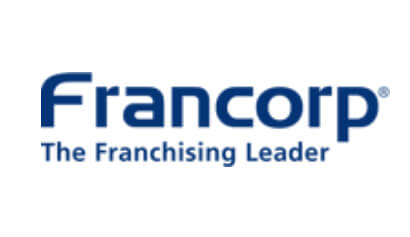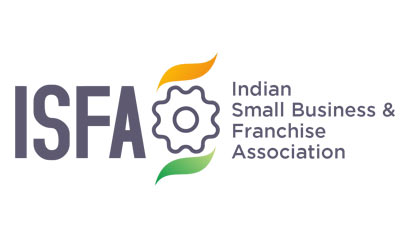To get access to over 10000+ Franchise Business Opportunities.
Network with the growing Business Community to get expert interventions to let you learn to Grow & Expand your Business with Franchising.
Foreign Direct Investment {FDI}, a component of a country's national financial accounts, is investment of foreign assets into domestic structures, equipment, and organisations. FDI occurs when an investor, based in one country (the home country), acquires
Foreign Direct Investment {FDI}, a component of a country's national financial accounts, is investment of foreign assets into domestic structures, equipment, and organisations. FDI occurs when an investor, based in one country (the home country), acquires some asset in another country (the host country) with intent to manage the asset. It can take two routes:
Although India has among the most liberal and transparent policies on FDI among the emerging economies, the Indian government has taken a consistent stand against FDI in the retail sector and it was only permitted as late as 2006, that too in the form of single brand retailing which is still subject to a sectoral cap of 51 per cent. Also, as it is not covered under the automatic route, all FDI in single brand retailing requires prior approval of the central government through FIPB. Despite the several liberalisation efforts of the government, multi-brand retailing has been strictly kept out of purview of FDI to afford economic protection to the domestic unorganised retail sector. This stand of the Indian government, however, has not acted as a deterrent for international brands planning to expand their businesses in India. They have opted for more innovative formats like brand licensing or complete franchise route.
FDI and franchising
The relation between FDI and franchise arrangements by international players with their Indian partners has been a source of constant debate and confusion. Therefore, there arises a need to draw a clear line of distinction between the two at the outset. Conceptually, a franchise arrangement is totally different from FDI. In a franchising arrangement, the franchisor usually does not make any contribution to the business in terms of equity. The franchisors contribution is in terms of grant of rights for the use of their intellectual property and business method. The equity is contributed by the Indian franchisee and the economic interest of the franchisor is limited to the franchisee fees that he receives from the franchisee.
Furthermore, franchising primarily involves sale of goods and services in India, through Indian franchisees, which at one level is more akin to sale of goods to distributors in India who could sell from their own retail outlets. Merely because under franchising, the franchisor usually exercises a higher degree of control over the franchisee’s business operations, it cannot be equated with FDI.
Thus, governmental regulations governing FDI can by no stretch of imagination be extended to franchising in India by international brands. Government through RBI has provided a different set of regulations to govern payments by franchisees to franchisors. It permits foreign franchisors to charge royalties up to 1 per cent for domestic sales and 2 per cent on exports for use of foreign franchisor’s brand name or trademark, without transfer of technology. In case of franchise involving technology collaboration, the government permits a lump sum not exceeding $ 2 million to be paid to the foreign franchisor. In addition, royalties up to 5 per cent on domestic sales and 8 per cent on exports can be paid to the franchisor without prior approval. Apart from this no separate payments are permitted on account of brand name or trademark, and the technology or knowhow.
Besides, as FDI is prohibited in multi-brand retail, a lot of multi nationals have actually utilised the franchise model to foray into India. For a long time now the franchise model has been one of the most prevalent and successful formats of retailing in India. Global players like US-based Tommy Hilfiger, Netherlands-based SPAR International, Argos, Debenhams, Costa Coffee, Domino’s Pizza, Thank God it’s Friday, Ruby Tuesday’s, Subway, Mothercare and McDonald’s have become forerunners in India through the franchising route.
However, the idea that prohibitions with regard to FDI have been an important factor in the growth of franchising in India by no means implies that opening of retail sector to FDI sounds the death knell for franchising in India. If the barrier to FDI was the only factor in the growth of franchising, there would be no franchise businesses in countries like US or Australia, having one of the largest retail markets in the world, which have negligible barriers against foreign retailers or service providers setting up their own outlets. Franchising offers business expansion that reduces costs per unit of sales, improve business and brand visibility making it a more viable option for investment. Franchisees become a source of finance and additional management to grow the business, which otherwise would need to be provided by the franchisor himself. Franchisors also gain from the franchisee's local market knowledge, existing infrastructure and real estate, which they would otherwise take time, money and effort to build. Thus, franchising becomes an efficacious alternative even for MNC’s with lower risk appetite, that want to enter the Indian market without making substantial investment in the country.
Therefore, FDI and franchise arrangements are two mutually independent routes of expansion available to the foreign entities and it’s a fallacy to assume that franchising is one of the forms of FDI. There is no sure shot formula to decide which of the two is economically a more sound and viable option, the choice varies with different situations and business model involved. In situations where both models, direct investment and franchise, are available, companies can actually make decisions based on a balanced analysis of their needs and resources.


Business Opportunities
Browse By Investment Range
Browse By States
Popular Cities
We value your privacy.
You can unsubscribe anytime















